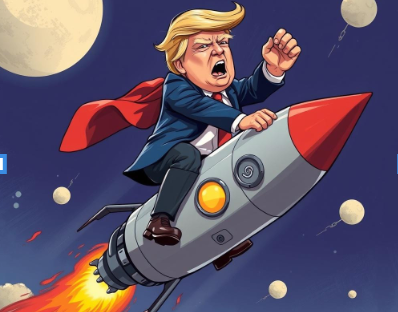$RSX $RTX $BTC
#Putin #Trump #UkraineWar #Ceasefire #Russia #USA #Geopolitics #Markets #Stocks #Crypto #Sanctions #Investing
U.S. President Donald Trump and Russian President Vladimir Putin are preparing to engage in a critical discussion regarding a 30-day ceasefire agreement in Ukraine. The potential deal, aimed at pausing ongoing military conflict, could have significant geopolitical and economic ramifications. Investors are closely watching the situation as sanctions on Russia and disruptions in global commodity markets have already affected financial markets. The outcome of these talks could influence energy prices, defense sector stocks, and the broader global investment environment.
A ceasefire deal could provide temporary relief to global markets, particularly in energy and commodities. Russia, a major oil and gas exporter, has seen numerous sanctions imposed by Western nations, leading to fluctuations in oil prices. If a ceasefire agreement is reached, oil prices, which have remained volatile, could stabilize or drop amid expectations of improved supply conditions. Conversely, defense sector stocks, such as those of U.S.-based Raytheon Technologies ($RTX), which have benefited from heightened military spending, might experience short-term pullbacks if geopolitical tensions cool. On the other hand, if negotiations fail, continued conflict could drive energy prices higher, further exacerbating inflationary pressures worldwide and compelling central banks to maintain tight monetary policies.
Additionally, market participants have been closely monitoring the implications for Russian assets and global trade. The VanEck Russia ETF ($RSX), which has been impacted by wartime sanctions and financial market restrictions, could see substantial movements depending on how investors interpret the likelihood of a ceasefire. The Russian ruble’s valuation against the U.S. dollar and other major currencies may also be affected, along with capital flows into emerging markets. Cryptocurrency markets, particularly Bitcoin ($BTC), which has been used by some investors as a hedge against geopolitical uncertainty, could experience additional volatility. Increased interest in digital assets could arise should tensions escalate further, while a ceasefire may lead to lower demand for decentralized stores of value in favor of traditional financial assets.
Beyond financial markets, the political stakes remain high for both leaders. Trump, who has been navigating a complex stance on U.S.-Russia relations, faces domestic scrutiny over his approach to Putin. How the U.S. administration handles negotiations could influence political sentiment ahead of upcoming elections. For Putin, securing a ceasefire that aligns with Russia’s strategic interests may help stabilize domestic economic conditions, especially as prolonged warfare drains financial resources. The broader global investment landscape will be shaped by the outcome of this crucial discussion, with market participants assessing whether geopolitical risks will ease or continue to weigh on asset prices.











Comments are closed.